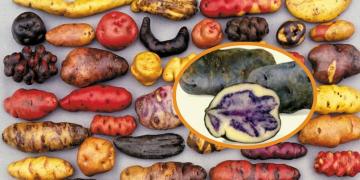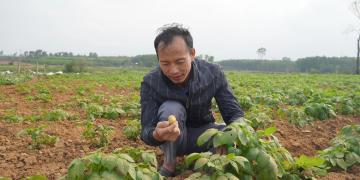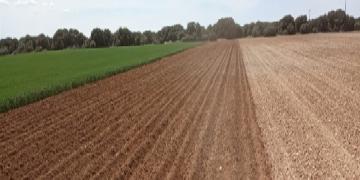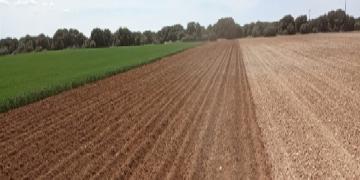Food Security: Nutritious, resilient, and affordable, potatoes are a powerhouse of nutrition.
Food security is an increasingly important issue in a world that needs to find ways to sustainably feed more than 8 billion people.

Food security is about ensuring that people have access to sufficient, safe, and nutritious food at all times, even in times of crisis.
And while vegetables lower in protein and higher in carbohydrates (starch) haven’t always received the dietary respect they deserve in recent years, potatoes have enviable statistics when it comes to food safety.
Productive and resilient cultivation
Potatoes produce more calories per hectare than most staple crops, such as rice and wheat. Furthermore, their growing season is shorter, allowing for multiple harvests per year.
The environmental performance of potatoes is also good compared to other crops, as they produce less CO², leach less nitrates, and require less water for production than legumes, wheat, or rice.
The Barilla Center for Food and Nutrition has calculated that one kilogram of potatoes requires 550 liters of water, compared to 2,580 liters for one kilogram of rice, and that CO² emissions from potatoes are 1,205 grams of CO² per kilogram, compared to 2,585 grams per kilogram for rice. Furthermore, potatoes require less land to grow: about 5 kilograms can be produced on 1 square meter, which is roughly a quarter of the equivalent land area for rice and much less than what is needed to produce one kilogram of pulses.
In 2024, registered growers in New Zealand produced over 419,000 tonnes of potatoes on 8,500 hectares, predominantly in the Canterbury, Pukekohe, and Manawatu growing areas.
It is essential that potato crops can grow in many climates and withstand the climate changes and challenges we face in New Zealand and around the world.
Traditional cereal crops face increasing threats from drought, heat, and pests as a result of climate change, but potatoes , with their relatively low water requirements and adaptability, are emerging as a more climate-resilient option.
An inexhaustible source of nutrition
Fried options aside, potatoes are an incredible source of essential nutrients and rich in vitamin C, potassium, and vitamin B6. They’re also low in calories, rich in fiber (when eaten with the skin), and a source of protein, making them a valuable component of a balanced diet, especially in food-insecure areas where malnutrition is prevalent.
Potatoes are a starchy vegetable composed primarily of carbohydrates, which (though unpopular among those following the keto diet) serve as the body’s primary source of energy. This makes them exceptionally energetic, providing a substantial amount of calories per serving. Their overall macronutrient profile—with essential nutrients, a moderate amount of protein, and a naturally low fat content—makes them an efficient source of energy and a crucial dietary choice for those living in areas where food security is an issue and whose diets may lack sufficient calories.
Accessible and affordable
The accessibility and affordability of potatoes are essential factors in their contribution to food security. Potatoes consume fewer resources than many other crops or sources of animal protein, so they are generally more affordable, making them accessible to low-income households and communities.
The relative ease of cultivation in diverse environments makes them accessible to a wide range of producers with different soil conditions.
Potatoes also store well, with a relatively long shelf life without the need for refrigeration or special storage facilities during processing.
The potato is, and will continue to be, a key factor in food security for populations around the world. The role of New Zealand and its farmers is to ensure that research and innovation are supported so that these crops remain an essential source of nutrition for local and export markets.
Researchers are currently developing new potato varieties that are even more tolerant of heat, drought, and saline soils to expand potential cultivation areas and prepare for future climate changes.
Fuente: potatoesnz.co.nz




